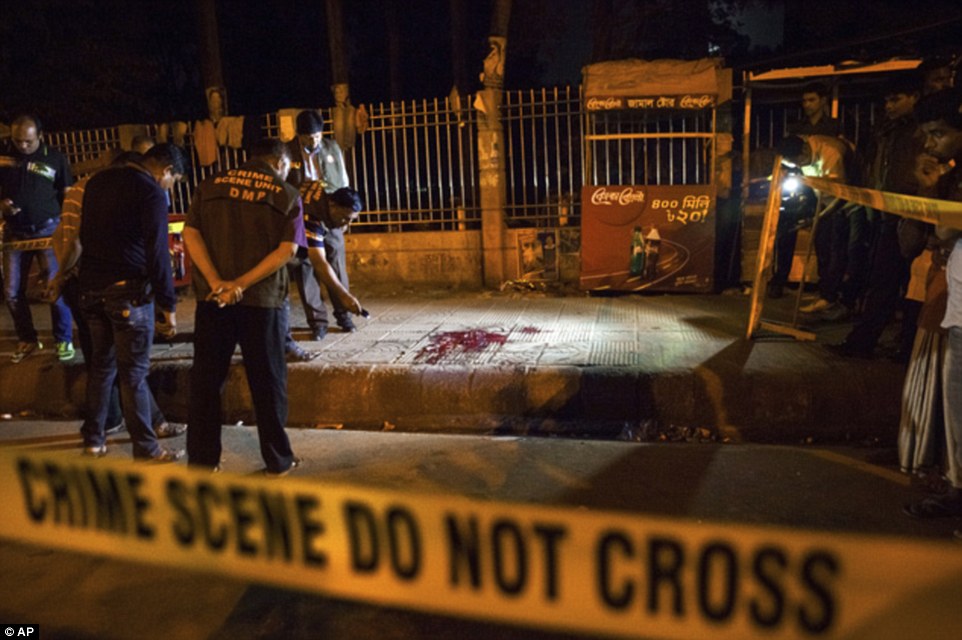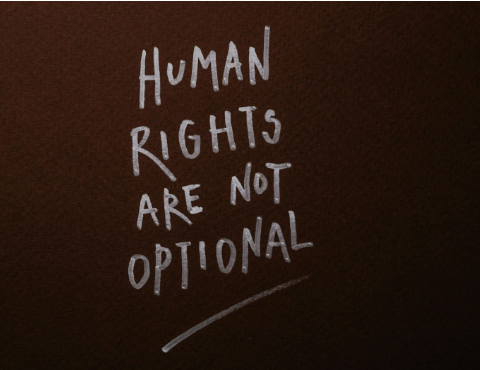
“We are united in our grief and we remain undefeated.” These are the words inscribed upon a black screen when you pull up mukto-mona.com, Avijit Roy’s website that was created as a forum for the free expression of Bengali writers on the topics of religion and politics. On February 26, Avijit Roy and his wife, Rafida Ahmed Bonya, also a blogger, were leaving a book fair in Bangladesh’s capital, Dhaka, where he was promoting his newest book, when the attackers approached them. They were brutally attacked with machetes by two assailants from the Bangladeshi militant Islamist group Ansar Bangla. Roy lost his life on the street, while his wife sustained head injuries and lost a finger. She is currently recovering from her injuries.
Roy was a Bangladeshi-American blogger based in Alpharetta, Georgia who wrote prolifically about the need for secularism and the problems with using religious ideals for political means. A scientist by trade, he expressed most of his thoughts through his blog, Mukto-Mona, meaning “Free Mind” in Bengali, and through the website of the Center for Inquiry, an American organization that is focused on humanism and critiques against religion. Roy was also the author of ten books, his most famous being Biswasher Virus or “Virus of Faith,” which he was promoting at the time of the attack. In an article written for the Center of Inquiry also named “The Virus of Faith,” Roy outlines his viewpoints on religion: “To me, such religious extremism is like a highly contagious disease. My own recent experiences in this regard verify the horrific reality that such religious extremism is a ‘virus of faith’…Faith-based terrorisms are nothing but viruses — if allowed to spread, they will wreck havoc on society in epidemic proportions.”
ধর্ম কেন ভাইরাসের সমতুল্য? (প্রেক্ষিত : পেশোয়ার এবং শার্লি এবদো) http://t.co/ocr29al3wN
— Avijit Roy (@avijit_roy_MM) January 19, 2015
In this tweet he links an article he wrote on his website, Mukto-Mona, where he compares religion to a virus. He brings up the attack on the Peshawar school that killed 175, and the Charlie Hebdo attack.
In the article, Roy discusses how, after the release of his book, his e-mail was slammed with death threats from Islamic fundamentalists. Last year, Shafiur Rahman Farabi, the man who the Bangladeshi police have arrested as a suspect in the murder, left an ominous message on Facebook that said: “Avijit Roy lives in America. So, it is not possible to kill him now. When he returns home, he will be killed then.” It was also made clear that a part of the reason he was killed was that he was an American.
The attack against Roy was not the first act of violence against bloggers and journalists in Bangladesh. In 2004, Humayun Azad, a prominent anti-religion writer and professor at Dhaka University, was attacked in a similar way after attending the same book fair. As a result of the attack, he incurred severe wounds. In 2013, another blogger, Rajib Haider, was hacked to death on the streets of Dhaka in the same manner as Roy because of his support for the death penalty for those who were convicted of committing war crimes during the 1971 Bangladeshi war. Most of these war criminals were members of the Islamist Jamaat-e-Islami party.
Despite provisions in Bangladesh’s Constitution that call for freedom of expression, the country has not lived up to these standards. This has been just as true in the political arena as it is for the blogging world. Prime Minister Sheikh Hasina has arrested and tried many journalists and bloggers for blasphemy under Section 57 of the 2006 Information and Communication Technology Act. This law censors any sort of speech or information that “causes to hurt or may hurt religious belief or instigate against any person or organization.”
Right now, the world is struggling with freedom of speech and what that really means. Bangladesh has been set up as a secular democracy with the principle of freedom of expression. Yet, since the country’s independence it has been governed by Islamic ideology that has persecuted those who do not fall in line. The murder of Avijit Roy is not just an attack based on differing ideologies – it is an attack on the freedom of speech. The death was an attempt by Islamic fundamentalists to once again silence their dissenters as they did in the Charlie Hebdo attack. Both attacks bring up the question of why it seems so difficult for Islam and freedom of speech to operate within the same framework. Michael De Dora, the director of the Center for Inquiry’s Office of Public Policy released a statement reacting to Roy’s death. He said, “Avijit was an inspiration to countless other freethinkers, in Bangladesh and around the world, and he was an inspiration to me.” Roy has become a martyr for those who have been silenced by extremism and fear not only in Bangladesh, but everywhere.
However, this isn’t the end of Roy. In a statement released by Roy’s daughter, Trisha Ahmed, she said that her father’s death will not have been in vain. The Twitterverse has echoed this sentiment through a new hashtag that spreads Roy’s message to anyone who is willing to listen. It is a simple message that will continue to reverberate around the world and withstand the test of time.
“Words cannot be killed”
– By Priyanka Ghosh


